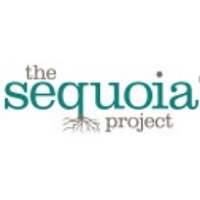 Workgroup Releases Insights and Recommendations from COVID-19 Response Lessons Learned
Workgroup Releases Insights and Recommendations from COVID-19 Response Lessons Learned
The Sequoia Project’s (@sequoiaproject) Emergency Preparedness Information Workgroup (EPIW) published Pandemic Response Insights and Recommendations, a free whitepaper for local, state, and federal emergency preparedness and public health officials and their partners. The workgroup, consisting of emergency preparedness, response, and public health experts, convened over several months to discuss gaps in current solutions. The workgroup recommended ways to make information more readily available to support a more robust and coordinated response to future emergencies.
“The COVID-19 pandemic brought circumstances that state and local public health agencies had to quickly act on. Everyone was forced to create a plan of action for a moving target; every day seemed to bring new and evolving information,” said Debbie Condrey, chief operations officer and chief information officer of The Sequoia Project as well as the EPIW facilitator. “The workgroup developed clear, actionable recommendations that address policy and regulatory issues, resources, equity, and more. For future emergencies, we are all better ready to react quickly.”
The workgroup consists of members who deliver emergency response services directly to citizens in states and localities, as well as representatives from federal agencies. EPIW members created a SWOT (strengths, weaknesses, opportunities, threats) analysis of the pandemic response and distilled the analysis into 17 recommendations to help local, state, and federal entities prepare for a more coordinated nationwide response to the next pandemic or similar emergency. The EPIW workgroup included participation from the various groups involved in emergency public health response to ensure the recommendations were fair and inclusive. “The wealth of the workgroup’s on-the-ground experience is invaluable as we look ahead to the next public health emergency,” said Nora Belcher, executive director of Texas eHealth Alliance and EPIW chair. “With The Sequoia Project’s support, we’ve built a community of practice for experts to share, learn, and motivate as we move this whitepaper from research to action.”
The Pandemic Response Insights and Recommendations whitepaper is not the end of the workgroup’s mission. EPIW 2022 goals include:
- Adding additional public health emergency response stakeholders to EPIW membership
- Prioritizing recommendations and acting on, as appropriate, recommendations made by the group
- Continuing to provide a community of practice forum where members may openly discuss challenges surrounding emergency response
EPIW launched in 2021 as part of The Sequoia Project’s Interoperability Matters cooperative, which engages experts from across the healthcare and healthcare IT communities to identify, prioritize, and collaborate on the most pressing, discrete challenges to nationwide health information sharing. Learn more about EPIW’s goals, recommendations from the pandemic response, and more in the Pandemic Response Insights and Recommendations paper published on EPIW’s website.
About The Sequoia Project
The Sequoia Project is a non-profit, 501c3, public-private collaborative chartered to advance implementation of secure, interoperable nationwide health information exchange. The Sequoia Project focuses on solving real-world interoperability challenges and brings together public and private stakeholders in forums such as the Interoperability Matters cooperative to overcome barriers. The Sequoia Project is the Recognized Coordinating Entity (RCE) for the Office of the National Coordinator for Health IT’s Trusted Exchange Framework and Common Agreement (TEFCA), for which it will develop, implement, and maintain TEFCA’s Common Agreement component and operationalize the Qualified Health Information Network (QHIN) designation and monitoring process.
